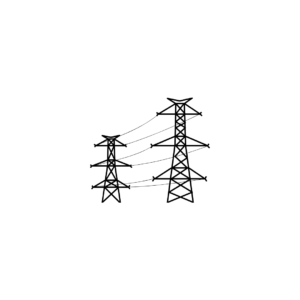Description
A Diploma in Electronics & Communication Engineering is a specialized program that prepares students for a career in the fields of electronics and telecommunications. This diploma focuses on the principles of electronic systems, communication technologies, and signal processing, equipping graduates with practical skills and theoretical knowledge necessary for various technical roles.
Curriculum Overview
The curriculum for a Diploma in Electronics & Communication Engineering typically includes a combination of theoretical instruction and hands-on practical training. Here are some common subjects and areas of study:
Fundamentals of Electronics:
Basic concepts of electronics, including semiconductor devices, diodes, transistors, and operational amplifiers.
Circuit Theory:
Analysis of electrical circuits, including both AC and DC circuits, and application of circuit laws and network theorems.
Digital Electronics:
Study of digital circuits, including logic gates, flip-flops, counters, and combinational and sequential circuits.
Communication Systems:
Overview of analog and digital communication techniques, modulation methods, and transmission media.
Microprocessors and Microcontrollers:
Understanding the architecture, programming, and application of microprocessors and microcontrollers in embedded systems.
Signal Processing:
Introduction to signal processing techniques for both analog and digital signals, including filtering, sampling, and modulation.
Telecommunication Systems:
Study of various telecommunication systems, including mobile communications, satellite communication, and fiber optics.
Control Systems:
Basics of control system theory, including feedback, stability analysis, and applications in electronics.
Electronic Measurements and Instrumentation:
Techniques for measuring electrical quantities and understanding various measuring instruments’ principles and applications.
Embedded Systems:
Introduction to designing and programming embedded systems and their applications in diverse fields.
Wireless Communication:
Concepts related to wireless communication technologies, including cellular networks and wireless sensor networks.
Project Work:
A practical project that allows students to apply their acquired knowledge in real-world engineering applications, often involving design and principles of electronic communication systems.
Career Opportunities
Graduates of a Diploma in Electronics & Communication Engineering can explore a wide range of job opportunities in various sectors, including telecommunications, broadcasting, electronics manufacturing, and IT. Some potential roles include:
Electronics Engineer: Designing and developing electronic circuits and systems for various applications.
Communication Engineer: Working on communication systems design, implementation, and maintenance.
Embedded Systems Engineer: Developing and programming microcontroller-based systems for electronics projects and applications.
Telecommunications Technician: Installing and maintaining telecommunications equipment and networks.
RF Engineer: Designing and testing radio frequency circuits and systems for communication applications.
Signal Processing Engineer: Working with algorithms and systems to process signals in various formats.
Field Service Engineer: Providing technical support and maintenance services for communication and electronic equipment.
Quality Assurance Engineer: Ensuring electronic products and systems meet quality standards and regulations.
Technical Sales Engineer: Selling and providing technical support for electronic communication products and solutions.
Research and Development Technician: Assisting in the development of new technologies and products in electronics and communication.
Further Education
After completing a Diploma in Electronics & Communication Engineering, graduates may choose to further their education by pursuing a Bachelor’s degree in Electronics Engineering, Communication Engineering, or a related field. Additionally, obtaining specialized certifications in areas such as telecommunications, network security, or embedded systems can enhance career prospects and professional development.
If you have any questions about the Diploma in Electronics & Communication Engineering program, career opportunities, or any related topics, feel free to ask!









